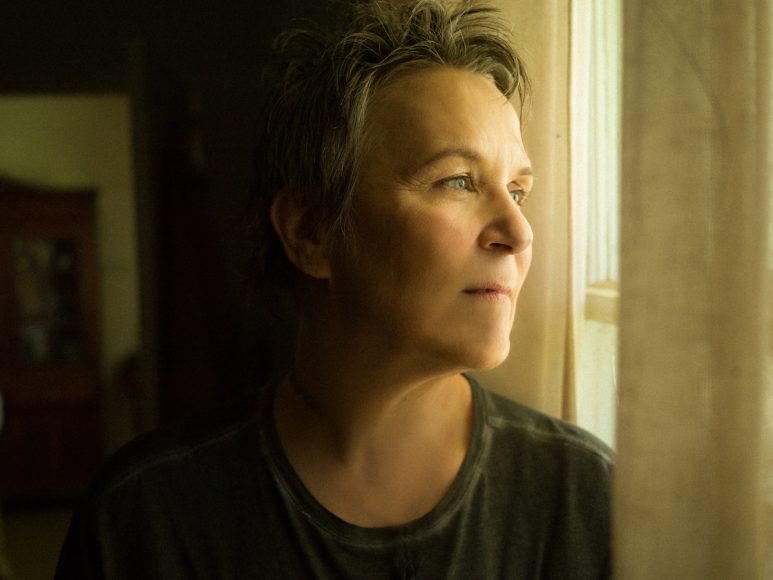
Mary Gauthier
Biography
Drag queens in limousines, nuns in blue jeans, dreamers with big dreams, they all took me in.” – “Drag Queens in Limousines,” Mary Gauthier
What out lesbian moves to Nashville at 40 to start a troubadour career? Who goes from playing open mics to playing the Newport Folk Festival in one years time?
It’s been 25 years since Mary Gauthier, now revered songwriter, released her groundbreaking debut album Drag Queens in Limousines. Eighteen months after this record was released, the response was so incredible that she hung up her chef’s coat, moved to Nashville, and started to make her mark as an exciting new voice in the songwriting world.
“Drag Queens in Limousines” is an anthem for anyone who has ever felt like an outsider. It turns out, that’s all of us. For twenty-five years, Mary Gauthier has brought all kinds of folks from all walks of life together with her deeply personal, yet paradoxically universal work.
By writing about what matters most to her, having the courage to sing what’s often too hard for us to say, and delivering the work authentically, Mary Gauthier opened the gate and widened the path that many who came after her have traveled.
Join us in celebrating twenty-five years of the unique, courageous songs of Mary Gauthier.
Video & Press
Standing Ovation for Mary Gauthier at The Ryman
A very special moment at The Ryman on October 12.
Mary Gauthier’s ‘Rifles and Rosary Beads’ Album Born of Writing With Combat Vets, Spouses
[Los Angeles Times] By Randy Lewis Nashville-based musician Mary Gauthier has been working for more than four years with wounded combat veterans through Songwriting With Soldiers, a program that offers a forum for members of the military to process their war experiences through music. But the critically acclaimed singer and songwriter thinks most of the […]
How Mary Gauthier is Helping Soldiers Tell Their Stories Through Music
[Billboard] By Gary Graff During the past four and half years, Mary Gauthier has written more than 50 songs with U.S. military veterans and their families via the Songwriting With Soldiers program. She’s releasing the first 11 as Rifles & Rosary Beads on Jan. 26 — whose “Brothers” is premiering exclusively below. “It’s really a […]
Mary Gauthier Uses Songwriting to Help Veterans
[The Tennessean] By Juli Thanki Two decades into her music career, co-writing is nothing new for Mary Gauthier. But some of her most powerful work has come in collaborating with men and women who’ve never written songs before. For the last four years, Gauthier has participated in SongwritingWith: Soldiers, a nonprofit organization that pairs veterans, […]